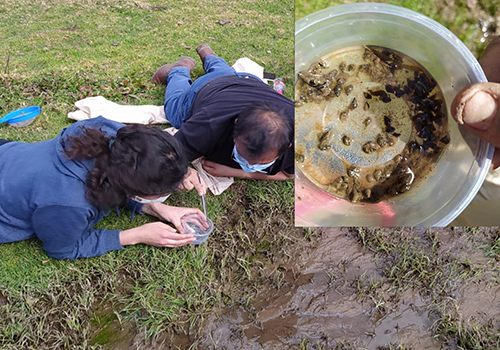Dr. Cabada is the Principal Investigator for a recently awarded Tropical Medicine Research Centers (TMRC) grant from NIAID titled: One-Health Approach to Study Human Fasciola hepatica Transmission and Inform Strategic Control. The TMRC are very
competitive cooperative agreement grants available every 5 years to advance NIAID’s global research effort by targeting research endeavors in low and middle-income countries and create and sustain in-country research capacity. Fasciola is a
liver fluke with a complex lifecycle that is influenced by human behavior and environmental conditions and involves snails, livestock, and humans. The fluke disproportionately affects children in endemic countries causing anemia, malnutrition, and
liver disease. A one health approach modeling all these variables will be able to identify limiting points in transmission that can be intervened on to control the infection. Dr. Cabada will be working in Peru with investigators from UTMB, Oregon
Health and Science University, Universidad Peruana Cayetano Heredia, and Universidad Nacional de Cajamarca disentangling the factors that determine the transmission of Fasciola to humans and creating new diagnostic and surveillance tools to control
the infection.

Image
1 - Above: Environmental conditions that allow the maintenance of Fasciola cycle in Cusco
|

Image 2 - Collection of snails in the field to evaluate infection rates
|

Image 3 - Snail colonies and metacercariae that emerged from infected snails.
|